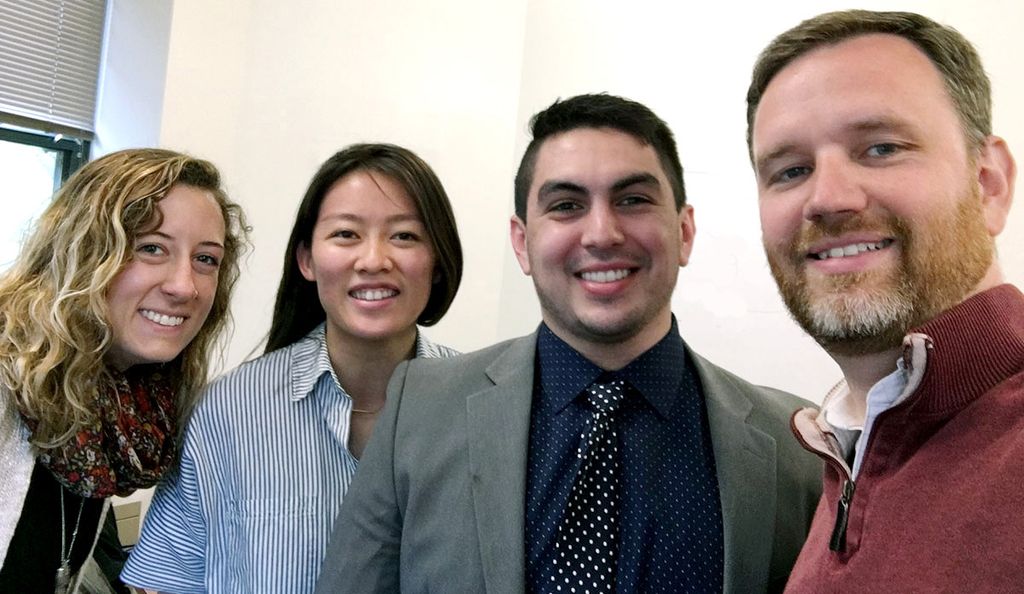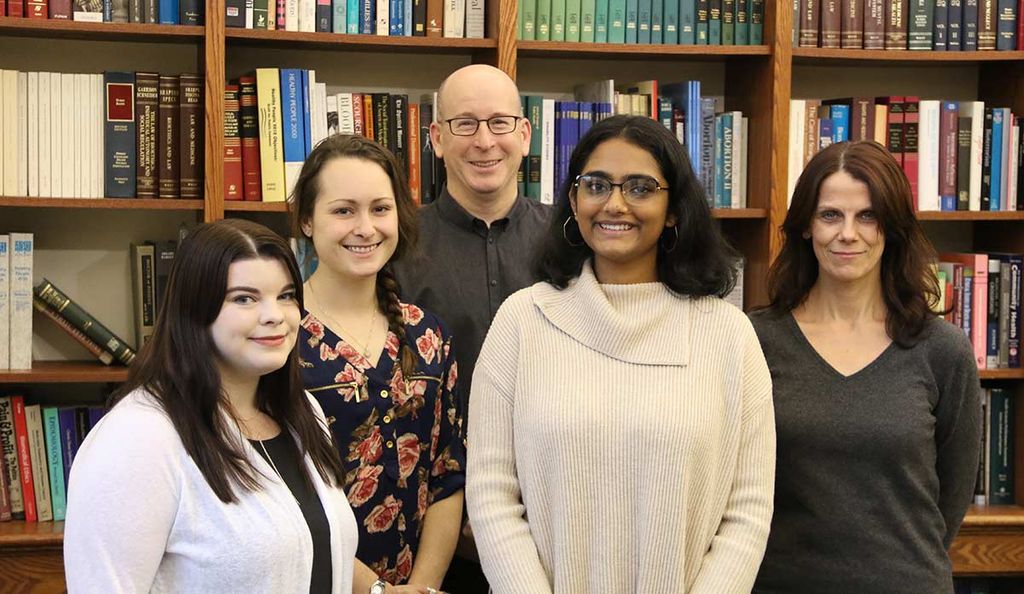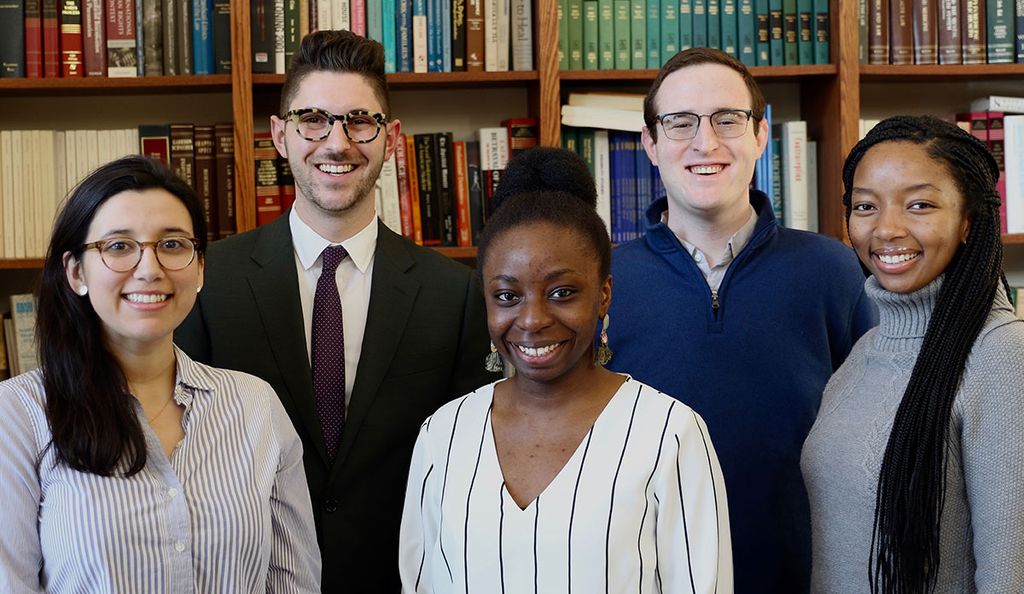Public Health Post: Reflecting on 9 Years Training Public Health Communicators.

Public Health Post: Reflecting on 9 Years Training Public Health Communicators
PHP recently began recruiting its 9th cohort of student writing fellows. Over the years, the publication has developed a reputation as a reliable public resource and educational tool.
What do contraceptives for men, comics for health education, the effects of air pollution on athletic performance, and healthcare accessibility for deaf and hard-of-hearing people all have in common? These topics and thousands more like them have been the subject of compelling, original stories published by Public Health Post (PHP) over its eight-year history.
Hosted by the School of Public Health, the one-of-a-kind online magazine enlists a cohort of graduate student writing fellows and a selection of guest authors to produce a steady stream of informative and engaging content, designed to target everyone from students and practitioners in the field to journalists, policymakers, and everyday people.
“Since its inception, Public Health Post has lived at the intersection of data and narrative, telling the story of health through expert voices, cutting-edge science, and a social justice focus,” says Dean Sandro Galea, who launched PHP in 2016 with the late David Jones, professor of health, law and policy and PHP’s inaugural editor-in-chief. Jones envisioned PHP would offer an experience akin to a good dinner party where readers could get acquainted with fascinating individuals and ideas, and engage in stimulating, meaningful discussions. PHP has since brought thousands of people to the table.

While public health occasionally captures the attention of the mainstream media—usually in times of crisis, PHP managing editor Mallory Bersi says, “PHP strives to fuel the national conversation on public health year-round.”
Five days a week, PHP posts articles to its anchor website publichealthpost.org. Each Friday, the articles are neatly packaged into an email newsletter called the “PHP Friday Roundup” and sent to PHP’s approximately 14,000 subscribers in 50 states and more than 100 countries. Thousands more interact with PHP on Instagram, LinkedIn, and via PHPod, a podcast series PHP introduced in 2020 to share conversations between fellows and public health influencers about common but at times uncomfortable public health topics such as body image, harm reduction, and white supremacy.
Through the years, PHP has also inspired three books: Pained: Uncomfortable Conversations about the Public’s Health, The Picture of Health, and the forthcoming The Turning Point: Reflections on a Pandemic. Each evolved from a collection of essays and “databytes” first published in PHP newsletters by Galea and Michael Stein, chair and professor of health law, policy and management and PHP executive editor.
“We are striving to explain health to a population that knows better than ever before that how we constitute and run our world affects how we live, the quality of our days,” says Stein of PHP’s work. “We want every new public health student in America to read [PHP] and know they are in the right place, doing the right work.”

To communicate the ways social, economic, and cultural forces shape health in punchy and easily digestible ways, PHP produces five types of articles: Viewpoints show personal perspectives and reflections on public health issues, Research covers the latest population health findings and their implications, News details current events in the field, Profiles spotlight practitioners and other people doing the work, and Databytes—a PHP invention—are short pieces that call attention to a chart, graph, map, or other visual depiction of data to tell a powerful yet accessible story.
“Despite there being so much new and profoundly important public health research, it’s difficult for the public, even those in the health field, to access and make sense of it all. Finding, deciphering, and bringing to light pertinent health research with Public Health Post is both crucial and incredibly gratifying,” says 2023-2024 PHP fellow Caroline Dignard. Examples of her work for PHP include a databyte on toxins in receipt paper, and research pieces on brain injuries from ice hockey fights and the mental health co-benefits of SNAP, a federal nutrition assistance program.

Public Health Post was one of the reasons she chose to come to SPH, Dignard says. “I see the skills I’m developing with PHP being central to any role I take on in my career. I now understand the importance of clear, concise, and thoughtful writing and my confidence to effectively communicate complex ideas has soared.”
This confidence is a source of pride for PHP associate editor Jennifer Beard, who acknowledges the intensive apprenticeship presents students with a formidable challenge. Over the course of their year-long fellowship, PHP Fellows are expected to pitch ideas, submit approximately 40 articles for feedback, and in many cases, make multiple rounds of revisions.
“With each article they are learning to balance inspiration with attention to detail, and confidence that they have something important to say with humble acceptance that any draft can always be improved,” says Beard, who on top of teaching writing in her courses as clinical associate professor of global health, developed and leads the BUSPH Public Health Writing Program, a resource providing peer writing support and other educational writing tools for students, faculty, and staff. “Watching each Fellow develop and hone their writing process through constant deliberate practice never fails to inspire me.”

Through regular writing workshops, editorial meetings, and individual mentorship, Beard, Stein, and Bersi support PHP Fellows to establish effective writing habits, explore what fascinates them, and gain the skills to both accurately and ethically communicate science. In an acknowledgement of the value of PHP’s approach, professors at other universities and colleges have adopted PHP’s model to teach the art of public health writing to undergraduates. At the annual meeting of the Association of Schools and Programs of Public Health in 2022, Shannon Anderson, an associate professor of sociology and coordinator of the Public Health Studies program at Roanoke College, shared her PHP-inspired curriculum, saying, “PHP is taking complex research and making it acceptable to a lay audience. If we can’t do that with public health writing, then we’re not doing public health.”

To date, 30 students have served as PHP Fellows. After graduating, fellows have gone on to a diverse array of public health careers in government, academia, biotech, healthcare, and nonprofit organizations. Many continue writing.
“When I heard about PHP, I knew it was an opportunity to turn my passion into practice,” says Rubina Veerakone, a 2021-2022 Fellow who translates biomedical research for lay audiences at MIT. “Our PHP team was truly seamless. The fellows soaked up each other’s unique views, and we really wanted to make everyone a better science communicator.”

Barbara Espinosa Barrera, a 2022-2023 Fellow, used her time at PHP to nurture her passion for environmental justice, publishing pieces about the benefits of urban agriculture and dangers of fracking. Realizing her writing had never been better than after completing her fellowship, she seized the moment to apply for a prestigious Pulitzer Center Reporting Fellowship. Come spring, she will travel home to the Cotopaxi region of Ecuador to report on how people residing near an active volcano are preparing for future eruptions. Espinosa Barrera also carries on her legacy of advocacy in full-time work at the greater-Boston area nonprofit GreenRoots as their environmental justice and health equity organizer.
Applications to the 2025-2026 PHP Fellowship are open until September 30, 2024 and interested students are encouraged to apply, regardless of whether they have prior writing experience. PHP is eager to bring passionate and imaginative new voices to the conversation.
“In PHP, we find the curiosity, scholarly rigor, concern for vulnerable populations, and restless pursuit of new intellectual horizons that were so much a part of all David Jones did,” says Galea. “It has been a joy watching PHP grow and thrive as both a flagship initiative of our school and as core to the legacy of a much-missed colleague.”
